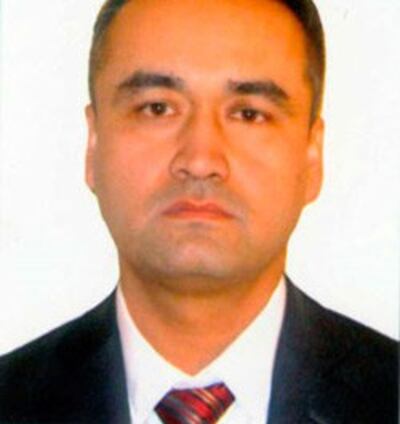A global rights group has criticized the U.N. refugees office in Kazakhstan for withdrawing the refugee status of a former Uyghur schoolteacher and facilitating his deportation to China, where he could be punished for speaking out on torture and death in Chinese jails.
The Germany-based World Uyghur Congress (WUC) accused the office of the United Nations High Commissioner for Refugees in Almaty, Kazakhstan’s largest city, of effectively relenting to the demands of China.
Ershidin Israil, 38, was deported last week after a court in Kazakhstan, which is a China ally, refused to provide him political asylum even though he was granted refugee status by the Geneva-based U.N. High Commissioner for Refugees (UNHCR).
“We know that China had its hand in the case. We were not surprised by Kazakhstan’s decision … but we were surprised that UNHCR officials in Almaty and Geneva believed China’s allegations and followed China’s orders in Ershidin [Israil]’s case,” WUC secretary Dolkun Isa said in an interview.
Israil had sought sanctuary in Kazakhstan after fleeing his home in the Xinjiang Uyghur Autonomous Region (XUAR) as he was hotly pursued by Chinese authorities who accuse him of "terrorism."
He is likely to face harsh punishment in a specific case of informing Radio Free Asia about the death in custody of a fellow Uyghur held by Chinese authorities for alleged involvement in July 2009 riots in the XUAR capital Urumqi.
Speaking after a phone conference among WUC leaders on the issue, Isa said that the UNHCR should not have allowed Kazakhstan to deport Israil because he faces torture in China.
“The UNHCR also violated international law by not taking any action while the deportation was taking place. Kazakhstan should not have returned Ershidin to China whether or not he was recognized as a refugee, because the Convention Against Torture applies whether or not the person is a bona fide refugee,” he said.
“Ershidin is not a criminal or a terrorist, but even if Kazakhstan claims that he is, he still should not have been returned to China because he may face torture there.”
UNHCR officials were not immediately available to comment on the issue.
Refugee status withdrawn

Around three or four weeks before Israil’s deportation, UNHCR withdrew his refugee status, according to Omer Kanat, vice president of the WUC.
Kanat also said that Israil’s lawyer, Yuri Sergeivich Stukanov, was not officially informed about the withdrawal of his refugee status, and Israil was not aware of it while he was being taken to China.
Kanat said he learned of the withdrawal of the refugee status from the UNHCR office in Washington a week before Israil’s deportation.
“We informed Enver Israil, Ershidin’s brother, about the decision, and he told [Ershidin Israil’s] lawyer, who was shocked by the decision,” Kanat said.
Lawyer Stukanov asked in a letter to the UNHCR in Almaty on May 27, four days before Israil’s deportation, whether Israil’s refugee status had been withdrawn and if so, when and for what reason. The UNHCR office replied saying that Israil’s refugee status was confidential.
Chinese pressure
Isa accused not only Kazakhstan, but also the UNHCR, of giving in to Chinese pressure.
“Withdrawing Ershidin’s refugee status indicates how the UNHCR was influenced by a superpower like China, instead of standing firm on justice and truth in this humanitarian issue. The process of the decision made by UNHCR also violated international law,” he said.
Kazakhstan is a member of the regional Shanghai Cooperation Organization. Based on SCO agreements, Kazakhstan is obliged to extradite individuals accused by another member state government of “terrorism,” “separatism,” or “extremism,” and to “prevent the granting of refugee status and corresponding documents” to persons alleged to be involved in offenses related to terrorism.
Isa raised the case of a group of 20 Uyghurs who were deported by Cambodia to China in December 2009 the day before a high-level Chinese visit, after which China signed a slew of high-profile investment deals with Cambodia.
For those refugees, Isa said, UNHCR officials even went to the airport to try to prevent them from being flown back to China. But in Israil’s case, UNHCR officials in Almaty and Geneva did little, he said.
“We know that the UNHCR is doing a lot of good around the world for people who are under the pressure of authoritarian regimes, including Uyghur refugees who fled from China, but their decision and position regarding Ershidin Israil was extremely wrong, and the result was very tragic,” he said.
Reported and Translated by Shohret Hoshur for RFA’s Uyghur service. Written in English by Rachel Vandenbrink.
